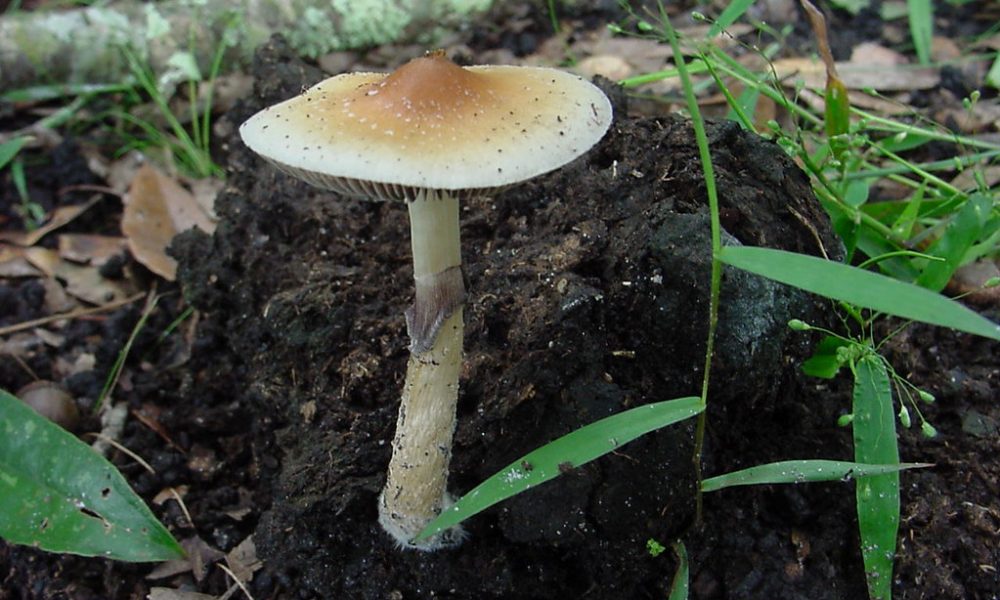The Indiana Senate on Tuesday overwhelmingly passed a Republican-led bill that would fund clinical research trials into psilocybin. The top Democratic senator filed an amendment that would have added language to the legislation to create a medical cannabis program in the state, though he did not force a vote on it.
The Senate advanced the psychedelics measure to the House in a 47-1 vote. The action follows the proposal being passed unanimously by the Senate Appropriations Committee last week and the Health and Provider Services Committee last month.
“This bill provides hope to many individuals that are today in a hopeless situation,” Sen. Ed Charbonneau (R), the bill’s sponsor, said ahead of the floor vote. “I hope you feel the same and will vote for this bill.”
Sen. Greg Taylor (D), the minority leader, also rose in support of the measure, saying it is “a very, very important piece of legislation.”
“I want to thank Sen. Charbonneau for taking the great leap of faith to get this out there,” he said. “This could provide some really significant relief to a lot of Hoosiers here in the state of Indiana.”
Ahead of the floor session, Taylor had filed a 24-page amendment that would have inserted provisions into the bill to create a medical marijuana program in Indiana. Patients with cancer, multiple sclerosis, PTSD and other conditions would have been able to get doctors recommendations allowing them to legally possess eight ounces of cannabis and grow up to 12 marijuana plants at home.
The top Democrat did not force a vote on his amendment, however, nor did he mention it in his brief remarks ahead of the vote on the psilocybin bill, which now heads to the House of Representatives for consideration.
If the psychedelics measure becomes law, the measure would create a therapeutic psilocybin research fund “for the purpose of providing financial assistance to research institutions in Indiana to study…the use of psilocybin to treat mental health and other medical conditions.” Any research receiving funding under the bill would need to include veterans and first responders regarding in the study sample.
Researchers would need to apply to the state Department of Health to receive funds to study the substance as a treatment for conditions, six of which are specified in the bill: PTSD “with a focus on treating the disorder in combat veterans and first responders,” anxiety, depression, bipolar disorder, chronic pain and migraines.
The studies would need to “compare the efficacy of psilocybin as a treatment for mental health and other medical conditions…with the efficacy of other current treatment options.”
The bill would become effective immediately upon passage, as it was filed as an emergency measure. Officials would need to establish a process to administer the fund and process applications by July 1.
—
Marijuana Moment is tracking more than 1,000 cannabis, psychedelics and drug policy bills in state legislatures and Congress this year. Patreon supporters pledging at least $25/month get access to our interactive maps, charts and hearing calendar so they don’t miss any developments.
Learn more about our marijuana bill tracker and become a supporter on Patreon to get access.
—
At the bill’s first committee stop this year, former Indiana State Health Commissioner Richard Feldman said that using psychedelics to treat behavioral disorders “may sound like a pretty crazy thing to do on first consideration. That’s what I thought when I first heard about this.”
“But recent studies have shown impressive results conducted by respected institutions, and reported in mainstream publications,” he added. “Examples include the New England Journal of Medicine, the Journal of Psychopharmacology and the Journal of American Medical Association. Authoring institutions include Harvard, Hopkins, and New York University among others. This is in no way fringe science.”
A state-created study committee recently recommended that lawmakers authorize a psilocybin pilot program to research psychedelic-assisted therapy for mental health during this year’s legislative session, advising that “the Indiana General Assembly take an approach that strikes a balance between access, research, and prudence.”
While psilocybin is classified as a Schedule I controlled substance at the federal level, the body said, the “prevailing view is that psilocybin should not be a Schedule I drug and has proven medical benefits.”
Charbonneau said late last year that he was already in touch with people at Indiana University Health and Purdue University about psychedelic research.
“I have had discussions with both IU Health and with Purdue University,” he said. “I spoke to 150 pharmacy students at Purdue, and afterward had a chance to speak with the dean of the pharmacy program…and he texted Dr. Jerome Adams, who’s now at Purdue University.”
Adams, a former U.S. surgeon general under then-President Donald Trump, joined Purdue in October 2021. While he’s said little publicly about psychedelic-assisted therapy, he’s previously claimed that “there’s no such thing as medical marijuana.”
Indiana lawmakers have been considering marijuana legalization but so far have yet to take concrete steps toward the reform in the GOP-controlled legislature. Another interim study group heard testimony around the possibility of decriminalizing simple cannabis possession in November, but the group did not make any specific recommendations.
In an op-ed for Marijuana Moment, Rep. Blake Johnson (D) wrote recently that Indiana is “falling far behind” on marijuana as its neighboring states legalize. “I implore my fellow legislators to listen to the statistics. It’s time for Indiana to sow the seeds and reap the economic benefits of cannabis,” he wrote.
One supportive lawmaker—Rep. Justin Moed (D)—managed to force a vote on marijuana legalization in the House last year, but Republicans rejected the proposal.
Alaska Senate Panel Hears Proposal To Create Therapeutic Psychedelics Task Force
Image courtesy of Kristie Gianopulos.
Read the full article here


